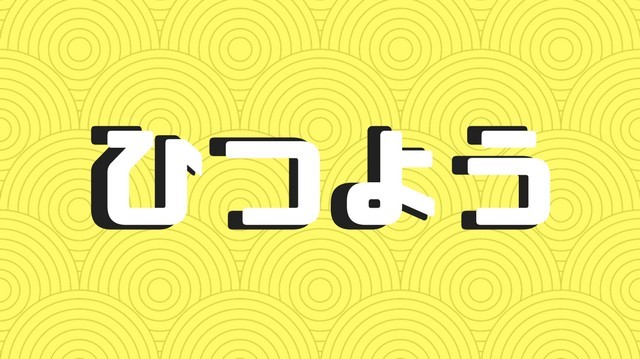Have you ever heard the word ひつよう (hitsuyou) used before? Or have you seen it written as 必要 in kanji? Just what does hitsuyou mean in Japanese? Well, there are a couple different answers.
By itself, hitsuyou means necessary in Japanese. But in addition to that, it’s also used in a couple of different set phrases that you’ll need to know in order to fully understand it when you hear it.
Let’s take a look at some example sentences that use 必要 and then explain what’s going on.
The Basic Meaning of HITSUYOU in Japanese
As I mentioned, the simple way to understand 必要 (hitsuyou) is as the English word “need” or “necessary.” Since 必要 is a na-adjective you will need to add the copula to the end of the sentence when you use it at the end. Here are some examples:
- I need a vacation.
休みが必要です。
yasumi ga hitsuyou desu.
- You don’t need your other house. You should sell it.
あなたは他の家が必要ないです。売るべきです。
anata wa hoka no ie ga hitsuyou nai desu. uru beki desu.
And when you want to use 必要 to describe an item as necessary, such as the “necessary clothing,” remember to add な on to it. Here’s what I mean:
- Where is the necessary clothing?
必要な服はどこですか?
hitsuyou-na fuku wa doko desu ka?
And the last thing for this section is that, sometimes you will see the word 性 (sei) added on as a suffix to 必要 which will change it into the word 必要性 (hitsuyousei) which means necessity.
That 性 suffix is equivalent to the English suffixes “ty; –ity; –ness; and –cy”
What Happens When You Add GA ARU to HITSUYOU?
A super common pattern that you will see is 必要がある (hitsuyou ga aru) which is used to say that a person “must do; has to do; is necessary to do” whatever verb appeared right before it.
- I needed to study today.
今日僕は勉強する必要があった。
kyou boku wa benkyou suru hitsuyou ga atta.
- I need to change some dollars into yen.
ドルを円に替える必要があります。
doru o en ni kaeru hitsuyou ga arimasu.
All you really have to do is put the verb in its plain (dictionary) form right before the 必要がある pattern, and you are good to go. Remember to conjigate the ある part of it when you need to change the tense or politeness of the entire sentence.
Speaking of which, if you want to flip it around and say that you “don’t need to do” something, then the pattern changes slightly to 必要はない.
- You don’t need to die!
死ぬ必要はないよ!
shinu hitsuyou wa nai yo!
- You didn’t need to eat eels…
鰻を食べる必要はありませんでした…
unagi o taberu hitsuyou wa arimasen deshita…
There are a few other ways to say that you “need to do” something in Japanese, but they don’t involve 必要, so I won’t clutter this lesson up with them.
What Does Adding TO SURU to it Do?
And the last pattern that I’ll go over today is when とする (to suru) follows 必要.
Basically, 必要とする translates as “to be in need of” something or other. I suppose a simpler way would be to say that it is a way to say that you “require” something in Japanese. Let’s take a look:
- What that city needs (is in need of) is a new zoo.
その都市が必要としているものは新しい動物園です。
sono toshi ga hitsuyou to shite iru mono wa atarashii doubutsuen desu.
- Are you in need of Kazuo’s help?
和夫さんの援助を必要としていますか?
kazuo-san no enjo o hitsuyou to shite imasu ka?
As you can see, the する (suru) can be found in te-form as して (shite) in this pattern. But it’s also common to see it as just する as well:
- My job requires skill.
私の仕事は技術を必要とする。
watashi no shigoto wa gijutsu o hitsuyou to suru.
It Can Compound with Other Kanji Too
When 必要 is added to some kanji, it makes them change from their normal form into their “necessary” form. But not their final form!
- 必要条件 (hitsuyou jouken) = A necessary condition
- 必要語 (hitsuyou go) = A keyword, [computer terminology]
- 必要物 (hitsuyou butsu) = Necessities [lit. “necessary things”]
- 必要悪 (hitsuyou aku) = A necessary evil
- 必要経費 (hitsuyou keihi) = Necessary expenses
- 必要書類 (hitsuyou shorui) = The necessary documents
There are many ways that you can use hitsuyou in Japanese, and you should have a pretty good grasp on on the more common ones after reading this article.
What are some of the ways that you’ve seen it used? Let me know with a comment below!
Further Resources for Learning Japanese:
#3 Get My eBook (Secrets to Learning Japanese) for Free

またね!

1 thought on “What Does hitsuyou Mean in Japanese? Here’s The Answer”